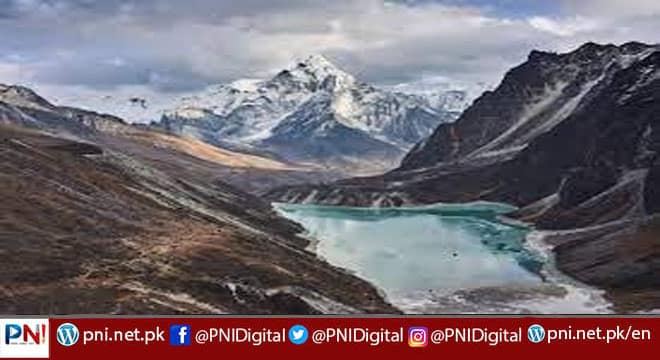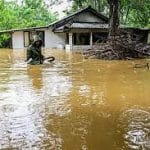ISLAMABAD December 10 (Online): Expert panelists participating in an event to observe the annual International Mountain Day called for prioritizing the protection of fragile mountain ecosystems.
The event was organized by the Institute of Regional Studies (IRS) in collaboration with the Civil Society Coalition for Climate Change (CSCCC) and Mountain and Glacier Protection Organization (MGPO) on Friday.
Speaking on the occasion, President IRS Ambassador Nadeem Riyaz shared that the International Mountain Day was being observed every year since 2003 to raise awareness about fragile mountain ecosystems.
He further shared that this year’s theme for the day was sustainable mountain tourism. While appreciating the significance of tourism for community livelihoods and national economies, Ambassador Riyaz underscored the importance of making it more sustainable. He called for an integrated regional approach towards countering the impacts of climate change on mountain ecosystems in South Asia.
The CEO of CSCCC Aisha Khan said that mountains were an important source of water and livelihoods for communities not only in the mountainous areas but also in the downstream river basins.
She added that imbalances in hydrological flows had led to disasters in the past and could do so in future as well. She highlighted that climate change was affecting mountain ecosystems by speeding up the melting of glaciers as well as decreasing the levels of snow precipitation.
Former chairman of the National Disaster Management Authority (NDMA) Lt Gen (Retd) Nadeem Ahmed underscored the importance of ensuring a harmonious human relationship with nature and ecology for ensuring sustainable growth and avoiding natural disasters.
He emphasized awareness-raising about ecology and environment among mountain communities to maintain the required ecological harmony. He also urged tourists traveling to mountainous areas to be mindful of environmental degradation and urged the government to provide necessary infrastructure for tourists to assist them in being environmentally responsible.
He termed the mountain communities as some of the most resilient and responsive communities. The Chairman of the Federal Flood Commission Ahmed Kamal highlighted the dangers posed by the erratic weather patterns over the past few years.
He stated that western disturbance weather system had become quite erratic in recent years which had also affected the monsoon pattern and precipitation in the region. He called for establishing community to community early warning systems for flood response.
Former Director General of the Meteorological Department Dr Ghulam Rasul stated that the projected 1.5-degree Celsius rise in global temperature could occur in the 2040s, which is ten years sooner than the earlier projections of it occurring by the year 2050.
He added that a slight rise in global temperatures could be disastrous for large segments of the population especially the most vulnerable communities living in the mountain regions.
He shared that Pakistan was host to more than 7,000 glaciers, which were showing mixed behaviours, wherein the south- and east-facing glaciers were melting at a faster rate than the ones facing north.
He added that while a lot was being said about the Karakoram Anomaly, which maintains that the glaciers of the Karakoram mountain range are either surging or are stable, they were only 121 glaciers in total and, thus, only 1 percent of the total number of glaciers.
He cautioned that overall the glaciers were melting at a much faster rate. He further added that the mountain ecosystems could not be isolated from other ecosystems because there were downstream and upstream connections between them.
Follow the PNI Facebook page for the latest news and updates.









